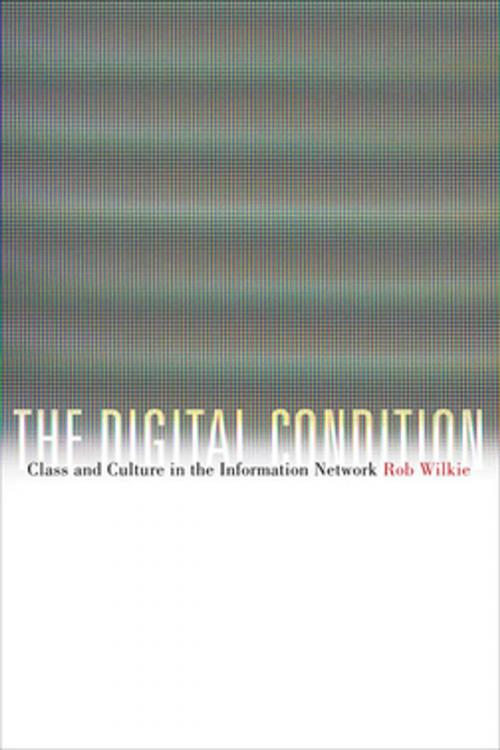The Digital Condition
Class and Culture in the Information Network
Nonfiction, Religion & Spirituality, Philosophy, Social & Cultural Studies, Social Science| Author: | Rob Wilkie | ISBN: | 9780823234240 |
| Publisher: | Fordham University Press | Publication: | October 3, 2011 |
| Imprint: | Fordham University Press | Language: | English |
| Author: | Rob Wilkie |
| ISBN: | 9780823234240 |
| Publisher: | Fordham University Press |
| Publication: | October 3, 2011 |
| Imprint: | Fordham University Press |
| Language: | English |
The acceleration in science, technology, communication, and production that began in the second half of the twentieth century— developments which make up the concept of the “digital”—has brought us to what might be the most contradictory moment in human history. The digital revolution has made it possible not only to imagine but to actually realize a world in which social inequality and poverty are vanquished. But instead these developments have led to an unprecedented level of accumulation of private profits. Rather than the end of social inequality we are witness to its global expansion.
Recent cultural theory tends to focus on the intricate surface effects of the emerging digital realities, proposing that technological advances effect greater cultural freedom for all, ignoring the underpinning social context. But beneath the surfaces of digital culture are complex social and historical relations that can be understood only from the perspective of a class analysis which explains why the new realities of the “digital condition" are conditioned by the actualities of global class inequalities. It is no longer the case that "technology" can take on the appearance of a simple or neutral aspect of human society. It is time for a critique of the digital times.
In The Digital Condition, Rob Wilkie advances a groundbreaking analysis of digital culture which argues that the digital geist—which has its genealogy in such concepts as the “body without organs,” “spectrality,” and “différance”—has obscured the implications of class difference with the phantom of a digital divide. Engaging the writings of Hardt and Negri, Poster, Deleuze and Guattari, Derrida, Haraway, Latour, and Castells, the literature and cinema of cyberpunk, and digital commodities like the iPod, Wilkie initiates a new direction within the field of digital cultural studies by foregrounding the continuing importance of class in shaping the contemporary.
The acceleration in science, technology, communication, and production that began in the second half of the twentieth century— developments which make up the concept of the “digital”—has brought us to what might be the most contradictory moment in human history. The digital revolution has made it possible not only to imagine but to actually realize a world in which social inequality and poverty are vanquished. But instead these developments have led to an unprecedented level of accumulation of private profits. Rather than the end of social inequality we are witness to its global expansion.
Recent cultural theory tends to focus on the intricate surface effects of the emerging digital realities, proposing that technological advances effect greater cultural freedom for all, ignoring the underpinning social context. But beneath the surfaces of digital culture are complex social and historical relations that can be understood only from the perspective of a class analysis which explains why the new realities of the “digital condition" are conditioned by the actualities of global class inequalities. It is no longer the case that "technology" can take on the appearance of a simple or neutral aspect of human society. It is time for a critique of the digital times.
In The Digital Condition, Rob Wilkie advances a groundbreaking analysis of digital culture which argues that the digital geist—which has its genealogy in such concepts as the “body without organs,” “spectrality,” and “différance”—has obscured the implications of class difference with the phantom of a digital divide. Engaging the writings of Hardt and Negri, Poster, Deleuze and Guattari, Derrida, Haraway, Latour, and Castells, the literature and cinema of cyberpunk, and digital commodities like the iPod, Wilkie initiates a new direction within the field of digital cultural studies by foregrounding the continuing importance of class in shaping the contemporary.















